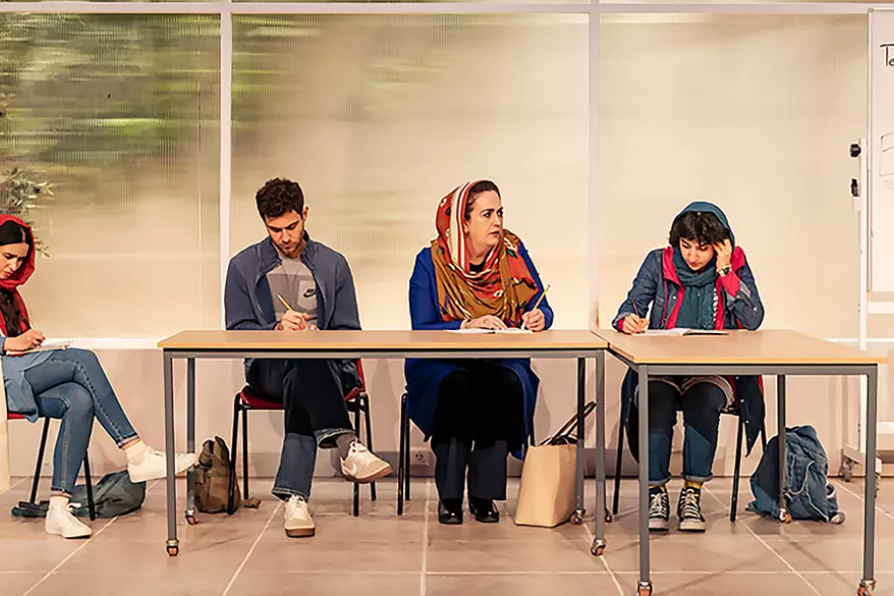TONY BURKE speaks to Gambian kora player SUNTOU SUSSO

 ELOQUENT SILENCES: The company in English by Sanaz Toossi
[Richard Davenport]
ELOQUENT SILENCES: The company in English by Sanaz Toossi
[Richard Davenport]
English
The Other Place, Stratford-upon-Avon
WITH language at the centre of current battles, not only with gender identity issues but also within our phoney culture wars, Iranian-American dramatist Sanaz Toossi’s Pulitzer Prize-winning play arrives in Britain spot on cue.
Set in an Iranian TOEFL (Test of English as a Foreign Language) classroom, a mixed group of four adult students engage with their linguistic struggles under the demands of their enthusiastic anglophile teacher who insists they communicate only in English.

GORDON PARSONS is blown away by a superb production of Rostand’s comedy of verbal panache and swordmanship

GORDON PARSONS is disappointed by an unsubtle production of this comedy of upper middle class infidelity

GORDON PARSONS joins a standing ovation for a brilliant production that fuses Shakespeare’s tragedy with Radiohead's music











